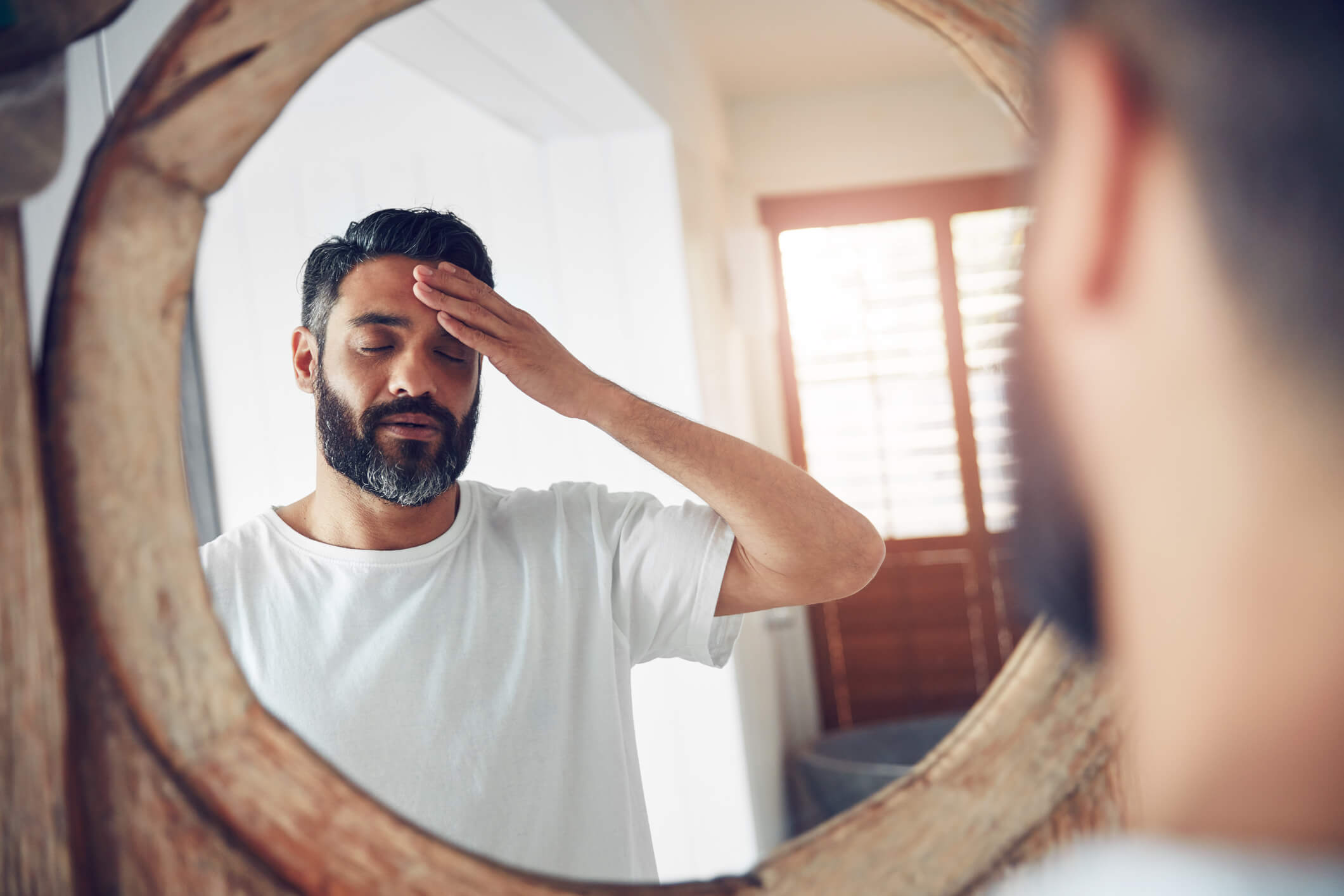-
We’ve all been there – watching the clock roll on while you work out how little sleep you’re now able to get. Not being able to fall asleep is incredibly frustrating – and the harder you try, the more difficult it can be.
It can be difficult to switch off your brain when trying to fall asleep, but getting enough sleep is crucial for your physical and mental wellbeing. A good night’s rest helps you better manage your emotions throughout the day. A poor night’s sleep can affect you in many ways:
- tiredness during the day
- poor concentration
- irritability
- aches and pains in muscles and bones
- weakened immune system.
Everyone experiences poor sleep at some point, but issues with disrupted sleep are experienced by most people with mental health conditions. While trying to get to sleep your worries and doubts can be hard to ignore. People with depression may also sleep too much.
Tips for getting a good night's sleep
The good news is that there are proven strategies for improving your night’s sleep. These evidence-based strategies will help create habits that better associate your bed with sleep.
Start calming yourself in the afternoon
Tiring your body and mind throughout the day is a great way to ensure you get a more solid sleep. Exercise is a useful way to tire yourself out but try to do it in the first half of the day.
Around four to six hours before bed, make sure to limit your intake of alcohol, caffeine and nicotine. Screen lights and apps are designed to trigger hormones in your brain that keep you alert, so make sure to avoid screens in the two hours before you go to bed.
Have a consistent bedtime
Try to develop a bedtime routine and go to bed and wake up around the same time each day (even on the weekends). As much as you may want to, avoid napping during the day. Your bed should also be kept for sleeping only – don’t read, watch TV or use your phone in bed.
Get out of bed if you can’t sleep
If you’ve been in bed for 20 minutes, but haven’t been able to sleep, get up and do something dull in dim light until you feel tired and try again. Repeat this as often as needed until you fall asleep. The first few days using this strategy may be a bit tough, but if you stick to it you will see results. This can be the most effective strategy for improving your sleep.
You can also try keeping a notepad by your bed and writing down any thoughts you’re stuck on to get them out of your head.
Working to improve your sleep may require a few changes to your lifestyle for a short period, but the results for your mental wellbeing will be worth it. If none of these strategies work for you, it may be worth speaking to a specialist and finding out about the full range of treatment options available.
Looking for mental health information and support? Call the Beyond Blue Support Service on 1300 22 4636 24 hours a day, 7 days a week, visit their website to chat online (3pm-12am AEST) .
If you're looking to get into better habits when it comes to your sleep, why not download our Live Better Rewards app. You can earn points and redeem rewards, simply by sleeping 7 or more hours a night.
How a lack of sleep affects your mental health

-
Do you need an electric toothbrush?
Which toothbrush scrubs up best?
-
Dietitian, nutritionist or naturopath: What’s the difference?
Who should you see for professional dietary advice?
-
5 ways to eat healthy while travelling
Come home feeling refreshed, fit and energised.
-
How often should you get your teeth cleaned?
We spoke to Medibank Members’ Choice Advantage dentist Dr Jonathan Cichero to find out.
-
Daily habits for good oral health
Do you really need to floss? Is an electric toothbrush better than a manual one? Find out which habits to make (and which ones to break) for better oral health.
-
How to conquer your fear of the dentist
Dr Merrilyn Hooley's tips for a less stressful dental appointment.
Subscribe to receive the best from Live Better every week. Healthy recipes, exercise tips and activities, offers and promotions – everything to help you eat, move and feel better.
By clicking sign up I understand and agree to Medibank's privacy policy






